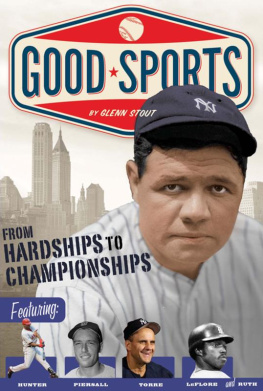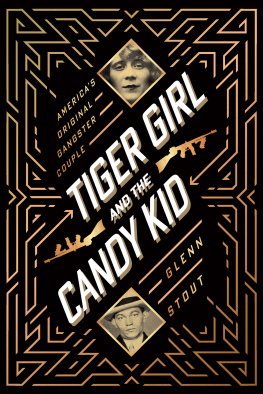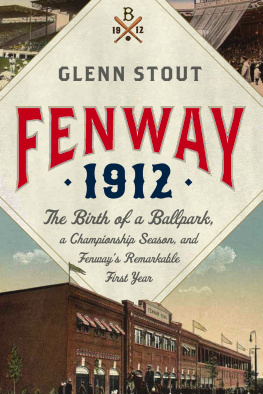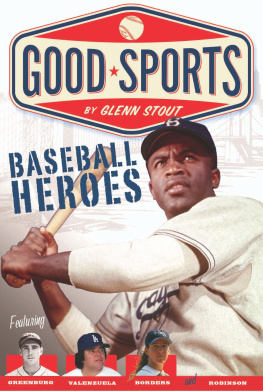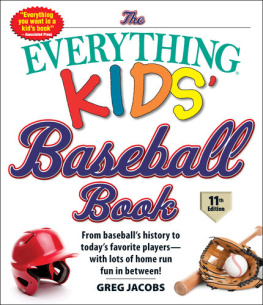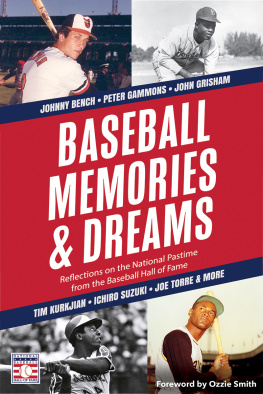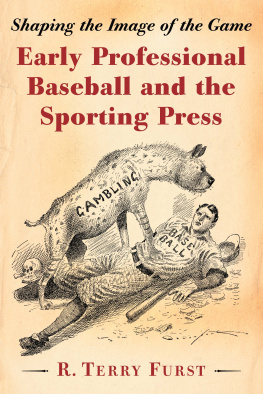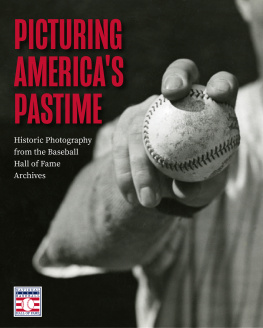Copyright 2013 by Glenn Stout
All rights reserved. Published in the United States by Sandpiper, an imprint of Houghton Mifflin Harcourt Publishing Company, Boston, Massachusetts.
For information about permission to reproduce selections from this book, write to Permissions, Houghton Mifflin Harcourt Publishing Company, 215 Park Avenue South, New York, New York 10003.
SANDPIPER and the SANDPIPER logo are trademarks of Houghton Mifflin Harcourt Publishing Company.
www.hmhbooks.com
Jacket art 2013: Babe Ruth photo Corbis; all other cover photos Associated Press Images
Interior art 2013 Associated Press Images
The Library of Congress has cataloged the print edition as follows:
Stout, Glenn, 1958.
From hardships to championships/ by Glenn Stout.
p. cm.
ISBN 978-0-547-88735-7
1. Baseball playersUnited StatesBiographyJuvenile literature. 2. Baseball playersUnited StatesConduct of lifeJuvenile literature. I. Title.
GV865.A1S819 2013
796.3570922dc23
[B]
2012023943
eISBN 978-0-547-98537-4
v1.0213
For everyone who has ever lost and then learned to win.
Introduction
T HERE ARE SOME THINGS ABOUT our lives that we cant control. While growing up, none of us is in control of where we live or under what conditions, or who our parents are or what our family is like. In fact, the differences between us are what make each of us distinct individuals.
Some people grow up in nice neighborhoods but feel neglected and ignored. Others might grow up in poverty and be surrounded by love and support. Some children might be raised by wonderful parents who work too hard to pay attention to their children, or by single parents who do a terrific job. And some might be raised by people who have trouble with drugs or alcohol or who are ill and cannot care for them. Everyones circumstances are different.
Those circumstances can sometimes make life hard for a young person, but it doesnt need to be that way forever. The best part about growing up is that as we do, each of us can take control of his or her own life. No matter how difficult a persons upbringing might be, it is still possible to live a productive life. By finding something you love to do and working hard at it, it is possible to overcome all sorts of difficulties.
The players profiled in this book were able to use baseball to help them overcome neglect, poverty, drug and alcohol abuse, and even mental illness. Babe Ruth was neglected by his parents, refused to go to school, and was sent away. Jimmy Piersall suffered from mental illness. Ron LeFlore grew up using drugs and stealing, and he spent time in prison. Joe Torre was terrorized by his father. Torii Hunter grew up poor, surrounded by gangs, with a father who was addicted to drugs.
Yet these men all managed to find a way out of their circumstances, to get help, and, through baseball, a game they loved, to turn their lives around. Despite the difficulty of their childhoods, each still managed to have a wonderful career and a productive, positive life.
Each of us who finds something we love to do and works hard at it can do the same. You might not make it to the major leagues, but you can still be happy and successful.
Thats part of being a Good Sport.
Babe Ruth: From St. Marys to the Hall of Fame
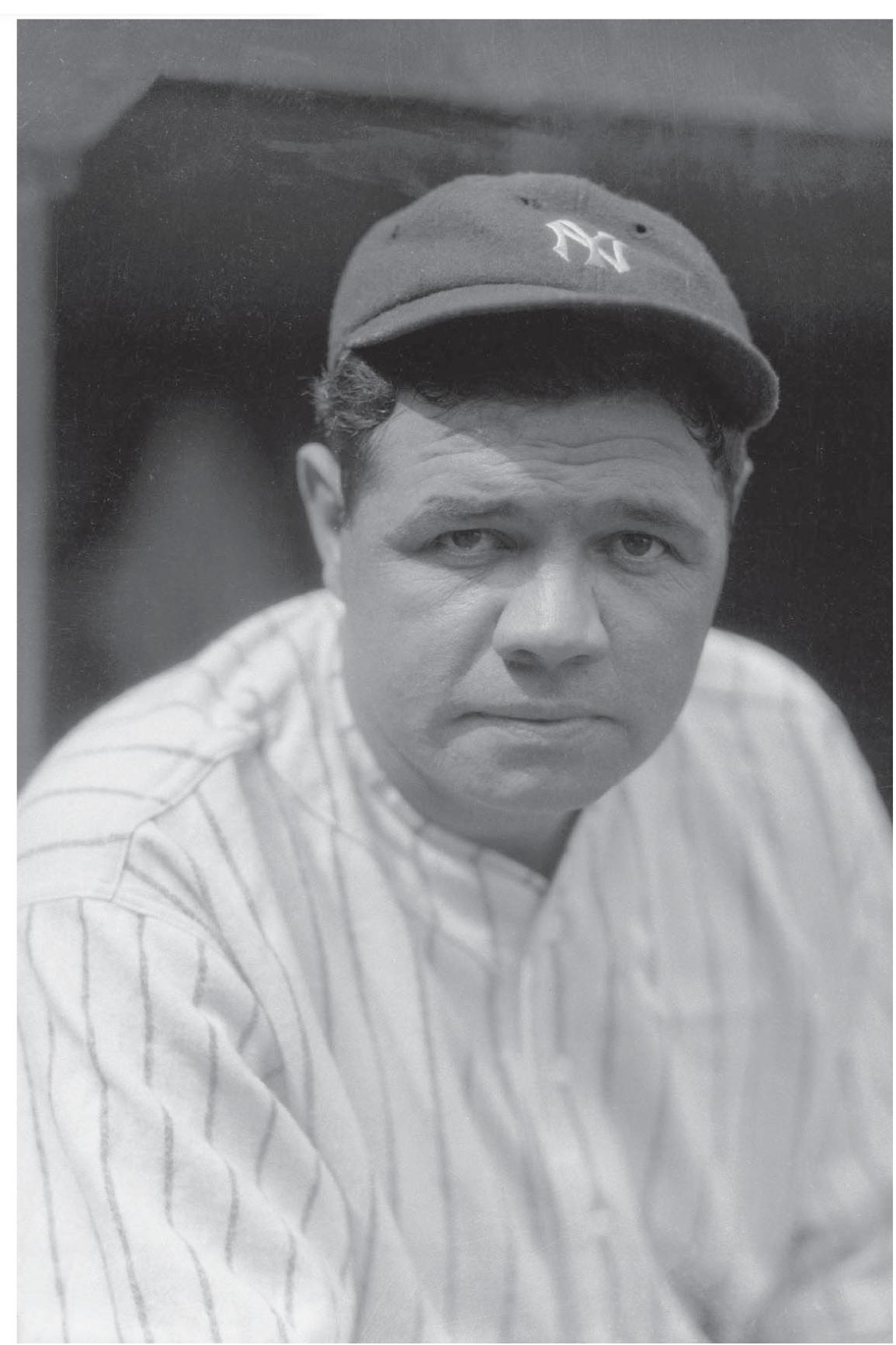
Babe Ruth
N EARLY ONE HUNDRED YEARS AFTER Babe Ruth first played in the major leagues, he is still considered one of the best players in the history of baseball. After starring as a pitcher for the Boston Red Sox, and as a slugging outfielder for the New York Yankees, Ruth changed the game forever. He became baseballs first great home run hitter, thrilling fans with his long, dramatic home runs and leading the Yankees to four World Series titles. At one time he held the record not only for the most home runs in one season, sixty, but for the most home runs in his career, 714.
But Babe Ruth was more than just a great player. He also became one of the most beloved athletes of all time. He played the game with the joy and exuberance of a child and sometimes acted like an overgrown boy. Kids loved his big laugh, his big smile, and his big stomach. He never seemed happier than when he was surrounded by a bunch of children clamoring for his autograph.
Yet when Babe Ruth was growing up in Baltimore, Maryland, no one would ever have imagined that he would be great at anything or beloved by anyone other than a member of his own family. Ruth himself once wrote, I was a bad kid. Yet despite growing up in circumstances that would have crushed the spirit of most children, he discovered that the game he loved could help turn his life around. Baseball helped save him.
Babe Ruth was born George Herman Ruth Jr. on February 6, 1895, the first child of George and Kate Ruth. His friends and family called him Little George to distinguish him from his father, who was called Big George. The Ruths had seven more children, but only one, Babes sister Mary, survived infancy. For most of Babes childhood his mother was ill and confined to bed.
Big George worked hard, but he rarely had much money. As a young man, he tried his hand at a number of different professions, but when Little George was six years old, Big George opened a restaurant and bar in Baltimore. The family lived above the saloon in a small apartment.
It was hardly the way for a young boy to grow up. His father worked at the saloon from early in the morning until late at night, when barroom brawls sometimes spilled into the street. After his sister Mary was born, Georges mother had her hands full taking care of an infant, and she had little time for George, who grew up with very little supervision. He was often left to roam the neighborhood in the company of other boys.
Although George and his young friends spent some of their time playing games such as baseball and football, the neighborhood around the waterfront offered plenty of opportunities for adventure and mischief. The wharves were always an attraction for the boys. There were boats loading and unloading supplies, and there were sailors from all over the world.
It didnt take long for George and the other boys to get into trouble. They banded together for protection from older kids. They were all poor, and they stole from food stands and grocery stores and committed small acts of vandalism. Neighborhood shopkeepers kept an eye out for George and his friends and chased them through the streets when they believed they had stolen something.
When George stayed home, he usually spent his time hanging around at his fathers saloon. While still a very young boy he picked up some bad habits, such as chewing tobacco, smoking, using bad language, and drinking. Neighbors complained to the police about the amount of time Little George was spending in the saloon. They told the police, Its no place for him.
One time when George was in the saloon, he saw his father leave the cash drawer unattended. He waited until no one was looking, then reached in and stole a dollara great deal of money at a time when most people were lucky to earn fifteen dollars a week. Then he dashed out of the saloon and met up with his friends. He shared his wealth by buying ice cream for everybody.
Unfortunately for George, his father soon discovered that the cash drawer was a dollar short, and he heard that George had been seen eating ice cream. When George came back to the saloon, his father confronted him. The boy confessed, and his father grabbed him by the collar and marched him down to the cellar beneath the saloon, where he beat him with a horse whip.
Next page
